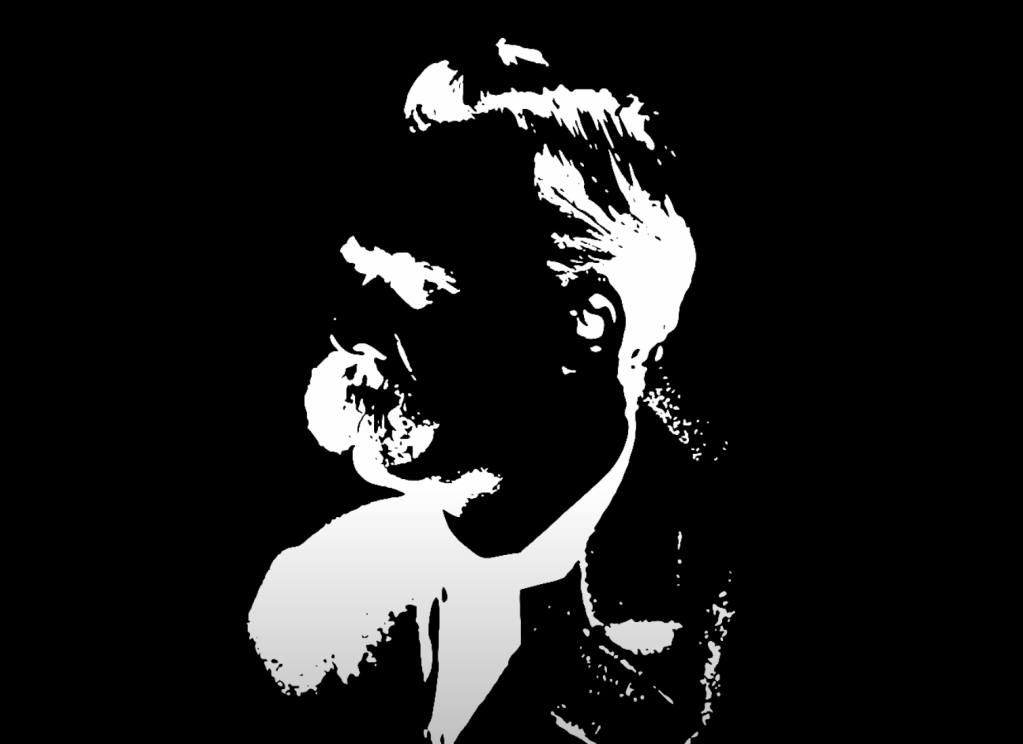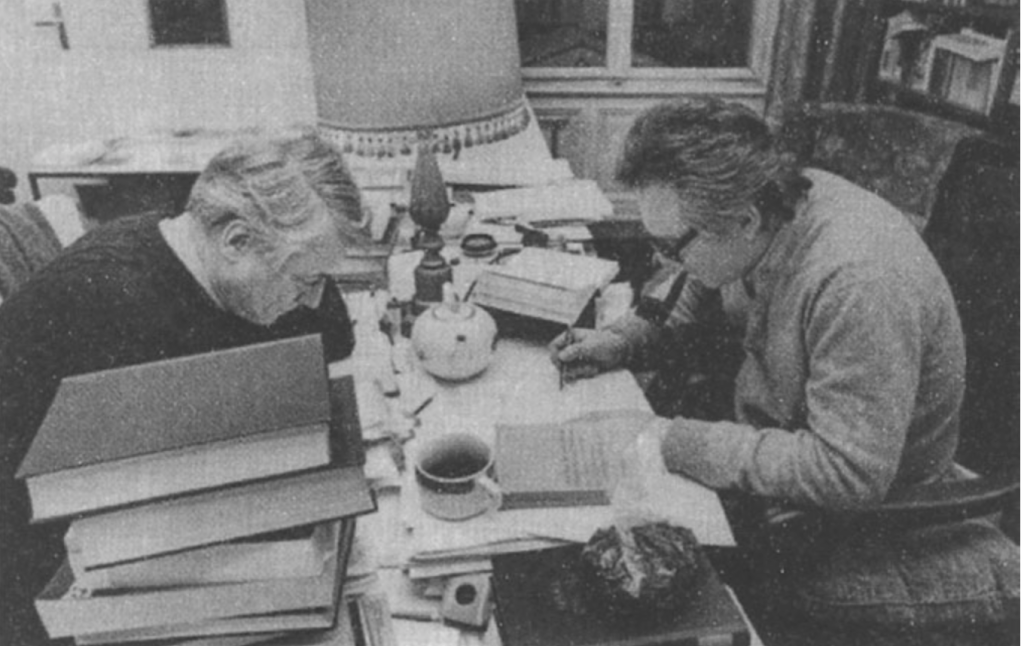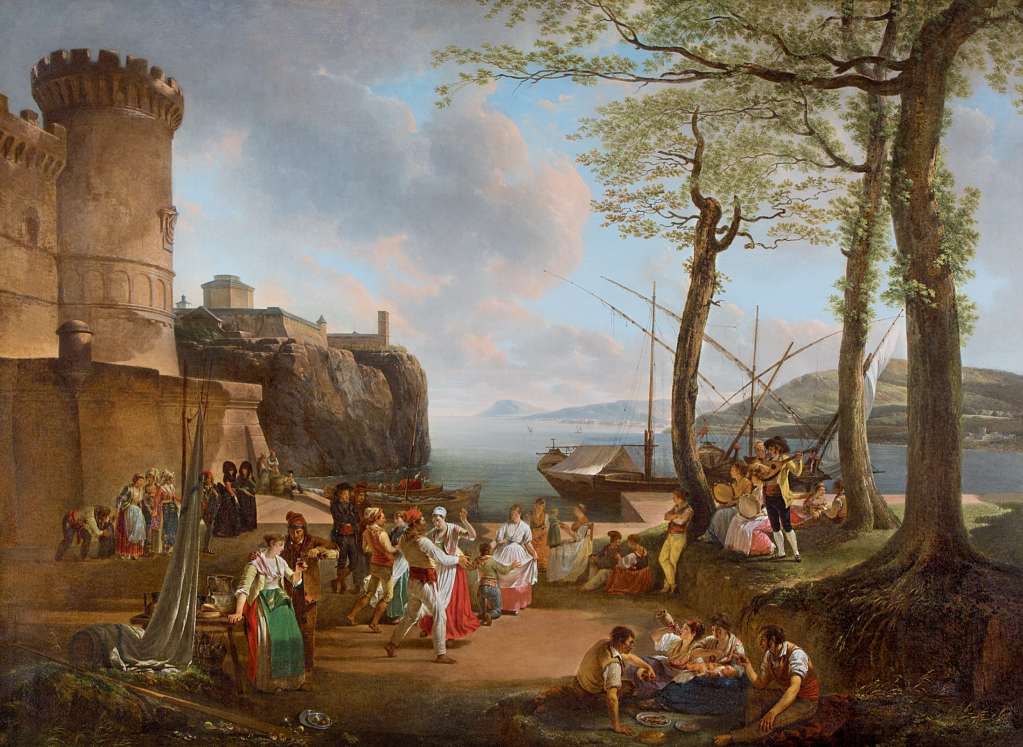Enemy-creation is the enterprise of contemporary politics. Temporary enemies proliferate all around us, from the immigrant, the bureaucrat, to the Mexican, to the Muslim–we all know these figures are little false flags which hide a more confused politics. The temporary enemy is a substitute for the true enemy as they offer an object by which some affective, pumped up negative identification can take place. They re-route the problem(s) to some other scene. This sort of enemy-creation is a result of the negative effects of the technocratic takeover of politics and the evacuation of a politics that aims to project a new space of possibility. Temporary enemy-creation is the sign of the inability to create a true alternative.
Political belief in an enemy only produces something new within the field of political life when that enemy is something different than the ruling order, when it presents a truly different proposal for society. The 1930’s fascists had a true enemy first and foremost from which all other struggle proceeded, and that true enemy was communism. A true enemy is not something you invent. A true enemy is never an extension of the given world order; like you, a real enemy challenges the world order, it comes from outside the world. A true enemy is thus not the world as it is, it is the other ideological pole that fights over which new world we must create. All of this is to say that the true enemy has perhaps never been liberalism. The political horizon is opened by the creation or existence of a true enemy.
Today, the re-activated fascisms face no real left opposition. To become a true enemy to contemporary fascism may mean that a new, more solidified leftism must rise out of an ideological fight with the new fascism. But on both the right and the left today, there is ambivalence and debate about whether liberalism, or neoliberalism is in fact the true enemy. Will Trump take the world beyond neoliberalism and towards something more nationally focused, where the globalist supremacy of integrated markets and centralized financial decisions no longer decide the fate of workers across the globe? Most critics seem to agree that Trumpism cannot upend these intricate global alliances. But that is not meant to underestimate the profound effect of the opening of something new that Trump ushered in. Trump is now the crowning far right advance in a series of electoral successes, from the Eurasian bloc in Hungary and Russia, to Brexit in the UK, to the possible electoral successes of the far right National Front in France, we find are-invigorated fascism. We must probe the debates, identify the contradictions and point out the inconsistencies of this new fascism.
It’s not only Carl Schmitt that we owe the great insight that politics is a battle over the creation of the space of the political once you have the ‘friend-enemy’ distinction established. The first Godfather of this hegemony politics is the prophet Johachim of Fiore, the thirteenth century theologian that invented political theology. He prophesied an immanent Kingdom of God that was based on the re-arrangement of actually existing political blocs within society. Johachimite theology posited a coming Age of Spirit where the consciousness of Christian monasticism would usher in an altered spiritual awareness able to bring about a new relation to sovereignty. Fiore is thus the first materialist political theologian as his approach necessitates a dialectical theory of history wherein different stages [ideological blocs] transition and struggle over the teleological creation of a new world.
Dugin and His Critics:
Alexander Dugin is revered as the arch-theorist of the far-right fascism that has been steadily uniting the western European bloc with the Eurasian and now the American. His thought is written about and considered mostly positively by these far right blocs. The idea of a master fascist thinker whose authority stems from the fact that he actually reads high theory is the basis of his success. He also has a big beard and looks like Rasputin. He has a television network and some power within the Putin administration. But I am more intersted in his actual political philosophy, not with his GeoStrategic ideas.
The best place to start to pick apart the ideas that permeate the far right today is to analyze the critiques Dugin has received by conservative thought leaders. While Dugin’s political theories have received criticism within fascist thought leaders particularly different western European and American fascists and conservative thinkers, these criticisms gained popular alarm when Glenn Beck placed Dugin at the center of a global far-right ideological network that he argued represents a truly scary version of politics in that it has subverted Anglo-Christian values. To Beck and American fascist figures like Richard Spencer, Dugin is perceived as a Pagan, anti-American theorist who neglects the underpinnings of a western, white power based superiority politics. He has been critiqued for being too open to diversity, as he argues in his landmark popular text, The Fourth Political Theory.
In this text, Dugin is largely indifferent towards identity politics but he advocates a return to “Traditionalism” based on a recognition that our era is one of transition where people cling to identity in a false way. So the embrace of Tradition is a necessity, i.e. across the world groups will return to tradition and this facing of tradition will strategically serve to orient humanity towards the new fourth option of politics. The question is still aligned along the Schmittian axis for the American and British fascists that critique Dugin. For they still insist that racism and racial exclusion remain the central organizing principal of the new political space. For Richard Spencer, the new political space will be opened by a white superiority approach over Dugin ‘Evental politics’ approach. In Spencer’s critique of Dugin, liberalism needs to be preserved but purified from its cross-cultural encrustations. Liberalism needs to align itself with a pride in western civilization from which a new cultural superiority will emerge. But Spencer’s enemy is not liberalism as such, it is not capitalism, it is the perverted direction that liberalism has taken after its turn to identity politics and multiculturalism. Spencer thus settles for a partial enemy in liberalism, a strategy to purify liberalism and return it to its Greco-Roman white supremacist origins. Spencer cannot think a true rupture with liberalism as such.
Dugin holds no punches and refuses to announce liberalism as the enemy itself. Liberalism must be overcome, but there is a collapse of any enemy that might rival the scene wherein a new fourth political theory will emerge. The sphere of the political, of the new politics, is one that rises based on a new ideological orientation towards chaos and destruction. From the immanent destruction of the liberal order a mystical Event will take place that ushers humanity towards a new relation to being.
Dugin makes enemies with Beck and Spencer in that he advocates a break from the core of the western Greco-Roman tradition in his argument that the current world structured around Logos must be converted into a world structured around a new relation to Chaos. The Fourth Political Theory is a manifesto for how to comport one’s thinking towards mystical being–it is a prolemegona to a mystical thinking to come, a preparatory text that lays out some nascent ideas before the Event will come to open the space of the political.
Dugin recognizes that the ideological scene of politics is in search for a proper enemy. But to properly arrive at the political, to open a cleavage for something truly new to take place at the level of political ideology, he abandons dialectics and opts for mysticism. Only an obscure “Political Angelology” approach to the realization of a more fundamental ground of being will lift humanity into a new orientation towards the political. He thus replaces political theology (Carl Schmitt) with political angelology. All strategic considerations of actually doing politics in this interregnum period–before the immanent collapse of globalist capitalism (Neoliberalism) led by the United States–must be directed towards the embrace of Traditiaonlism, the return to hierarchical religion and other obscure forms of politics.
In this sense, Dugin recognizes that the alignment and growing success of these far-right parties throughout Eurasia, the UK after Brexit, to the National Front in France and now to the Trump ascendancy in the United States are all merely an early beginning of the decline of the globalist world order and an affirmation of national-centric politics. These conservative successes do not represent the more mystical Heideggerian Event in which humanity reaches the rock-bottom of nihilism and rises from their blighted existential position into something more Radical. Dugin’s “Radical Subject” is ushered into existence as a triumphal return of being in that moment when mankind finally and irreversibly will forget about itself. Dugin’s vision is to force the anti-globalist struggles to reach rock-bottom, to push them to the point of total collapse wherein a new “ultimate historic catastrophe, in the traumatic experience of the ‘short circuit’” breaks the subject outside of time.
Dugin’s theory of the Event is contingent on catastrophe and destruction:
“Globalisation and the end of history cannot be reduced to the will of someone other than he who is the source of the creation of time, at least not within the limits of immanent philosophy. Consequently, this can mean only one thing: that within the depths of transcendental subjectivity, there lies another layer which Husserl had not uncovered. Husserl was convinced that the layer he discovered was the last one. But it turns out that this is not so. There has to be another dimension yet to be found — the most hidden one. We can designate it as the Radical Subject. If Husserl’s transcendental subjectivity constitutes reality through the experience of a manifestation of self-awareness, the Radical Subject is to be found, not on the way out, but on the way in. It shows itself only in the moment of ultimate historic catastrophe, in the traumatic experience of the ‘short circuit’ which is stronger, and lasts for a moment longer than it is possible to endure. The same experience that makes the transcendental subjectivity manifest itself and deploy its content, thus creating time with its intrinsic music, is regarded by the Radical Subject as an invitation to reveal itself in another manner — on the other side of time.”
The praxis of Dugin becomes directed towards the rock bottom nihilism on the ashes of Neoliberalism. he writes, “the end of days should come; but it will not come by itself. This is a task, it is not a certainty. It is active metaphysics. It is a practice. And it can be a potential and rational solution of the enigmatic layers that are discovered while talking about Fourth Political Practice.” This syncretic culling together of different strands of fascist vitalism, Heideggerian mysticism and a strange, Bergsonian theory of time where the mysterious Event is ushers humanity towards a new nihilism all indicates two things:
Firstly, the fact that Dugin exists and that he writes in the way that he does indicates that the authority of his vision, despite its absolutely dismal theoretical ingenuity and shallow proposals –all flow from his willingness to throw down high theory. Because he questions our global predicament from the standpoint of high theory, the far right fetishizes him as the missing great thinker, despite the fact that he has no real thinking to offer. The deficit of far-right master thinkers makes the space open for someone such as Dugin–an imposter charlatan figure–that is able to enter the scene and piece together obscure and highly destructive political visions. Secondly, the figure of Dugin shows the degree to which conservative and fascist thought is reliant on leftist philosophy, despite the nonexistence of the left in any actual political sense. From this reliance what is missed is the necessity to overcome capitalism as such.



Leave a comment